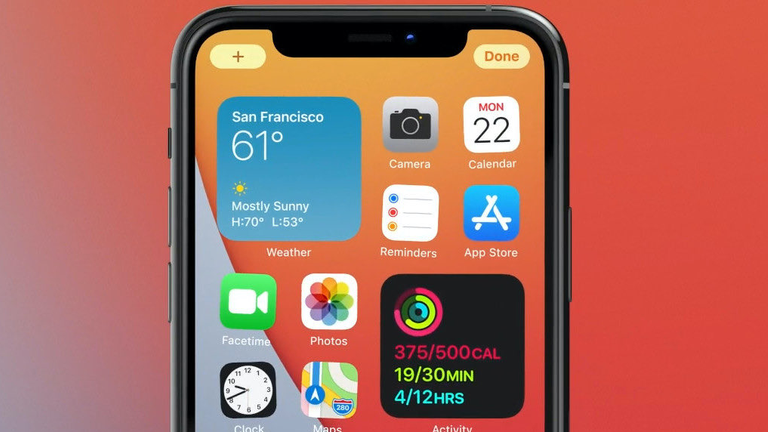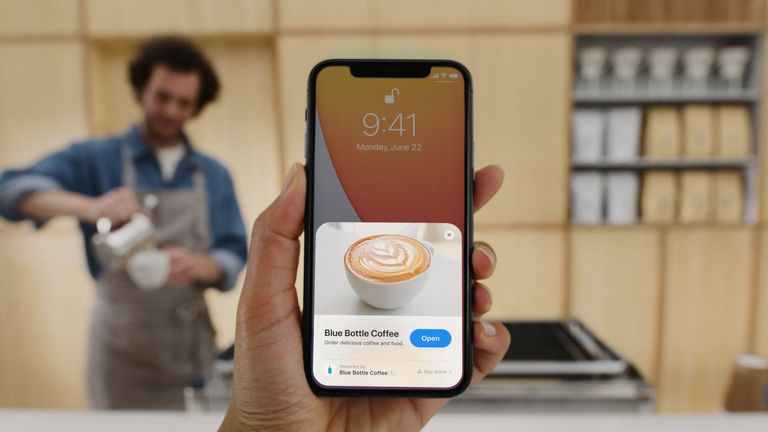Apple came out chasing Google in an event on Monday which announced dozens of new features for the iPhone, iPad, Apple Watch and Mac lines.
With attendees forced to tune in remotely for its annual worldwide developers conference due to the COVID-19 pandemic, the company stressed its products' privacy features and performance.
The company's chief executive Tim Cook opened WWDC with a keynote address dedicated to those campaigning in the US against racism in all levels of society, expressing his company's corporate initiatives to address systemic problems especially facing African Americans.
"Our mission has always been to make the world a better place," he said. "And we're committed to being a force for change."
Among the key claims which the company made on Monday was that its Safari browser was now 50% faster than Google Chrome, as well as much more privacy conscious.
Safari will also feature an in-browser translate function, similar to Chrome, and a range of measures to tackle web-tracking cookies - which Google is known to use to profile web-users for advertising purposes.
Apple's mobile operating system iOS had lagged behind Google's Android with a number of features, but this year's WWDC aimed to address most of them with iOS 14.
Widgets, a staple of the Android home screen, and calls as floating notifications instead of events which hijack the full screen of the device have been available on Android devices for years - but will be available on iPhones too from this autumn.
Another new feature, App Clips, was heralded for iOS 14 as small apps which don't need to be downloaded but can enable people to - for instance - pay for a coffee or parking without downloading the vendor's full app, something which was already available on Android phones with Instant Apps.
New app tracking controls will be introduced to the App Store too, similar to the nutrition labels on food, giving a detailed view of what data each app uses to track users.
This is one area in which Apple stands out from Google quite obviously as advertising based on user profiles isn't a key part of the company's revenue streams.
Apps which use the microphone and camera will also have to give a lot more permission about doing so, and iPhones will light up to show when these hardware features are in use.
A redesign of the iPhone home screen will also make a new feature called the "App Library" automatically organise various apps into groups, from social media apps through to streaming ones.
The picture-in-picture feature will also potentially allow iPhone users watching YouTube videos to continue to listen to them without keeping that app open on the screen, a feature which Google has reserved for users to subscribe to YouTube Premium.
The company also confirmed that it was moving away from using Intel processors on its Mac computers and would begin to ship Macs using Apple silicon before the end of the year.
The company's shares were trading up 2.4% following the presentation.
https://news.google.com/__i/rss/rd/articles/CBMiamh0dHBzOi8vbmV3cy5za3kuY29tL3N0b3J5L2FwcGxlLXd3ZGMtaXBob25lcy1jaGFzZXMtZ29vZ2xlLWFuZHJvaWQtZmVhdHVyZXMtd2l0aC1uZXctaW9zLXVwZGF0ZXMtMTIwMTI4MDXSAW5odHRwczovL25ld3Muc2t5LmNvbS9zdG9yeS9hbXAvYXBwbGUtd3dkYy1pcGhvbmVzLWNoYXNlcy1nb29nbGUtYW5kcm9pZC1mZWF0dXJlcy13aXRoLW5ldy1pb3MtdXBkYXRlcy0xMjAxMjgwNQ?oc=5
2020-06-22 20:15:33Z
52780871074308



Tidak ada komentar:
Posting Komentar